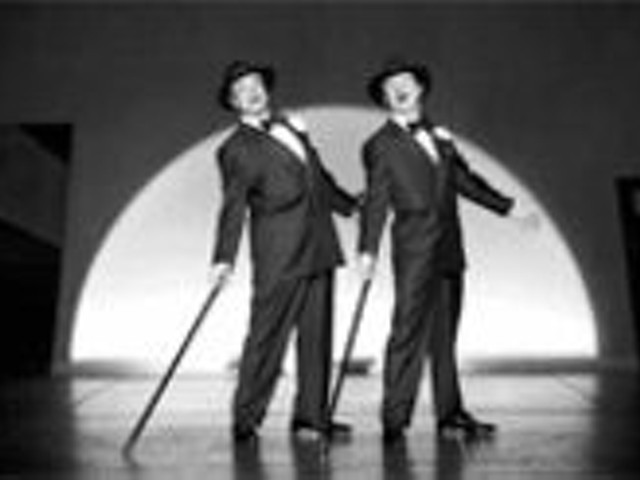You already know the plot. Daisy Werthan, the 72-year-old Atlanta dowager whose son forces her to be driven by a black chauffeur, is set in her ways -- or so she thinks, until she encounters 60-year-old Hoke Coleburn, who reels her in the way a deep-sea fisherman might reel in a swordfish. When the reeling is done, the jousting begins. In its slide-down-smooth way, Driving Miss Daisy manages to confront large issues: fear between white and black, mistrust between Christian and Jew. Little surprise, then, that the play is so popular.
Yet perhaps those who assembled this New Jewish Theatre mounting knew the story too well, for there's a sense that they approached the script as a proven vehicle rather than as material to be explored. Driving Miss Daisy is filled with gentle observations about literacy and prejudice, about pride versus false pride, but these simple truths should not come across as simplistic homilies.
Then there's this to consider: Any story that spans 25 years in 80 intermissionless minutes is spreading itself precariously thin. These scenes need to be filled out. What we get here is a "good parts" version that races from incident to incident without much attention to detail.
As directed by Edward Coffield, no one involved with the production seems to have been pushed. In theory, Diane Peterson, Dennis Lebby and Gary Wayne Barker comprise a dream cast. And in fact there's nothing wrong with any of their performances; these are talented actors. But aren't all three capable of excavating more deeply than they've done here? Peterson, for instance, is just fine as Miss Daisy. But where are the maddening idiosyncrasies and eccentricities of a fussy old woman accustomed to having her own way? We get a competent, intelligent reading of the lines, but the work is not very specific. Especially as she's been costumed, Peterson might just as well be playing Elwood P. Dowd's addled sister Veta Louise in Harvey. The same principle applies to Barker as Miss Daisy's son. Barker is one of the most gifted actors in St. Louis. But here he's been allowed to milk almost every line, even at moments where skim milk might be preferable.
The evening is fraught with questions. Why, in a candle-lit scene set during a power outage, are the stage lights so bright? And what are we to make of the scenic design by Christopher Pickert? This depiction of painted clouds behind a hanging window adds little to the story being told. It does, however, bear a curious likeness to his design last fall for the Washington University stage version of Kate Chopin's The Awakening. At least there the window was high enough so that no one bumped into it.
And why does the production feel hamstrung by a sense of clutter? Last season Coffield directed a fluid rendition of the musical Falsettos with a cast that was more than twice as large. But here, for the first time in recent memory the postage-stamp stage in the Wolfson Studio Theatre seems to work to the play's disadvantage.
Despite these reservations and queries, there's no denying that the production is easy to take. Most attendees will leave the theater with satisfied smiles. It's just that, as presented here, Driving Miss Daisy hardly seems substantive enough to merit its 1988 Pulitzer Prize for drama.





